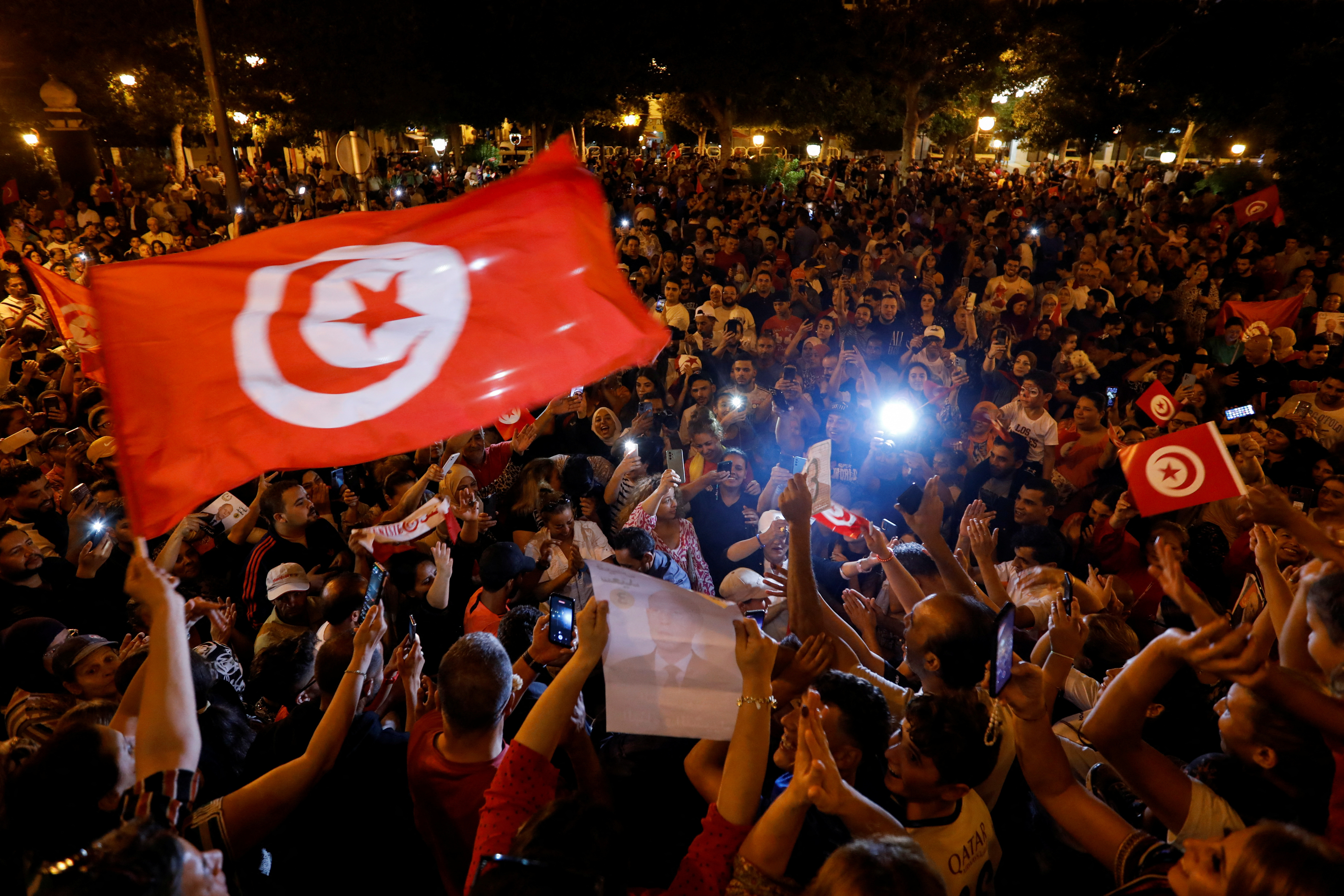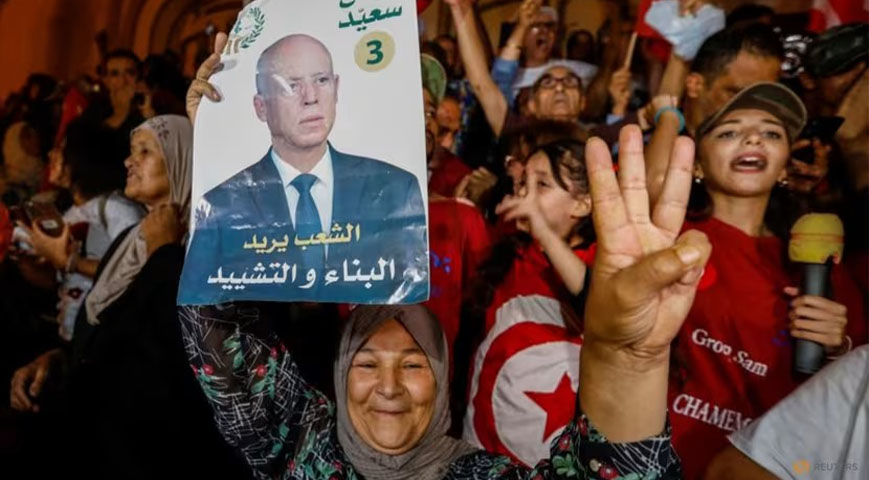Supporters of Tunisian President Kais Saied took to the capital's streets on Sunday night, celebrating an exit poll that placed him ahead in the latest election.
According to Sigma's poll on state television, Saied was projected to win with 89.2% of the vote, outpacing his two rivals, Zouhair Maghzaoui and Ayachi Zammel. The official results are expected by Monday evening.

Turnout for this election stood at just 27.7%, a significant drop from the 2019 presidential runoff, which saw double the participation. Saied’s challengers, including Maghzaoui and Zammel, dismissed the exit poll results, claiming the actual outcome would differ.
Did you read this?
Celebrations in Tunis highlighted widespread support for Saied, with citizens praising his leadership and his stance against corruption. One celebrant remarked, "He serves for the benefit of the people, not for personal gain."
Despite the festive mood among his supporters, Kais Saied has faced increasing criticism since coming to power in 2019.
Initially lauded for his reformist stance following the Arab Spring, Saied’s actions—such as dissolving parliament in 2021 and rewriting the constitution—have sparked concerns about democratic backsliding.

Rights groups argue that his consolidation of power has undermined many of Tunisia's democratic advancements post-2011.
The election occurred amid rising political tensions, with Saied's electoral commission barring several candidates and opposition groups protesting the disqualification process. Recent legislative changes have further reduced judicial oversight, causing concern among critics.
Tunisia's economic struggles have also fueled disillusionment. Despite a rise in tourism and external financial aid, many Tunisians face daily hardships, including shortages of essential goods and power outages, further complicating Saied's leadership amid growing opposition.









